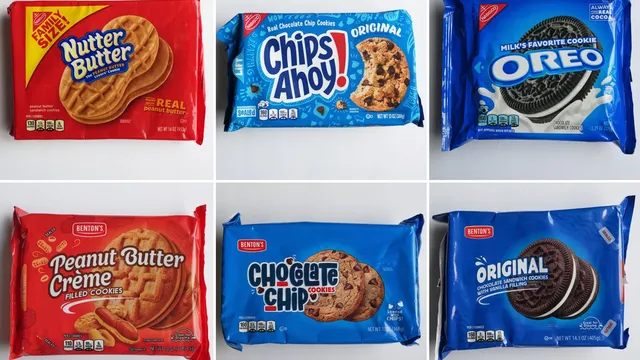
Mondelez sues Aldi over trademark infringement of snack packaging
2025-06-03 00:00- Mondelez International has filed a lawsuit against Aldi in Illinois, claiming that Aldi's store-brand snacks use packaging too similar to Mondelez products.
- The lawsuit seeks damages and an order to prevent Aldi from selling these allegedly infringing products.
- This case highlights ongoing legal battles over trademark protections in the marketplace and its implications for consumer perception.
Express your sentiment!
Insights
In a federal lawsuit filed on May 27, 2025, in Illinois, Mondelez International, the maker of popular snacks including Oreos and Chips Ahoy, alleges that the grocery chain Aldi has copied its packaging design for store-brand cookies and crackers. Mondelez argues that Aldi's packaging is likely to deceive and confuse consumers due to its striking similarities to their name-brand products. The lawsuit highlights potential harm to Mondelez’s brands and seeks both monetary damages and a court order to prevent Aldi from selling these infringing products. Mondelez International, based in Chicago, has been proactive in addressing packaging similarities with Aldi, previously contacting the supermarket chain regarding various products, including Nutter Butter cookies and Ritz crackers. While Aldi has made some changes to its product packaging in response to complaints from Mondelez, it still continues to sell other items that Mondelez claims infringe on its trademarks. The current lawsuit is part of a pattern; Aldi has faced similar legal challenges in the past, with various courts ruling in favor of name-brand companies. The dispute comes amid a growing trend in which discount grocers offer private label products designed to resemble leading brand snacks, allowing consumers to enjoy more affordable alternatives. This strategy has prompted legal scrutiny because consumers may mistakenly believe they are purchasing familiar name-brand products when they are actually buying store-brand versions. For instance, Aldi’s Thin Wheat crackers are packaged in gold, mirroring Mondelez's Wheat Thins, while its chocolate sandwich cookies use blue packaging similar to that of Oreos and Chips Ahoy. As the lawsuit unfolds, Mondelez aims to protect its market identity and brand image from what it describes as misleading practices by Aldi. The situation underscores the complexities of trademark law and the delicate balance between competitive pricing and consumer protection in the retail space. Aldi's business model, heavily reliant on store brands, could potentially be compromised if Mondelez prevails in the lawsuit, reinforcing the importance of distinct branding in a competitive market.
Contexts
The history of trademark infringement lawsuits in the food industry reflects a complex interplay between brand protection and market competition. Trademarks, which serve to identify and distinguish the source of goods or services, are critical in the food industry due to the vast array of products available to consumers. Infringement cases typically occur when one company uses marks similar to those of another company, leading to consumer confusion. High-profile cases often garner media attention, illustrating the lengths to which companies will go to protect their brand identity, as established trademarks can be essential tools for maintaining market share and consumer loyalty. One notable aspect of trademark infringement lawsuits within the food industry is the battle over names and logos that evoke regional identities or traditional food preparations. For instance, numerous lawsuits have arisen in connection with products that claim to be associated with specific geographical designations, such as “Parmesan” or “Champagne.” These disputes not only involve large corporations but also local producers who seek to protect their rights to use traditional names. As the global market expands, the complexity of such cases increases, as seen in disputes between old-world and new-world producers regarding the use of these iconic names. In recent years, the trend of aggressive trademark protection has grown, leading to what some critics refer to as the "trademark bullying" phenomenon, where larger companies may pursue infringement claims against smaller competitors or startups. This can deter innovation and market diversity, as smaller entities may lack the resources to contest such claims effectively. In turn, this practice has led to calls for legislative reforms and new guidelines on trademark use within the food sector, aiming to balance the interests of established brands with the need for fair competition and innovation in the marketplace. As the food industry continues to evolve with changes in consumer preference and the rise of e-commerce, the landscape of trademark infringement lawsuits is likely to become even more intricate. With growing awareness around issues related to branding and consumer perception, it is essential for companies operating in this space to understand the importance of protecting their trademarks while also being cognizant of the broader implications of their legal strategies. In this multifaceted legal environment, the food industry will need to navigate the delicate balance between protecting legitimate trademark rights and fostering a competitive market that benefits consumers.